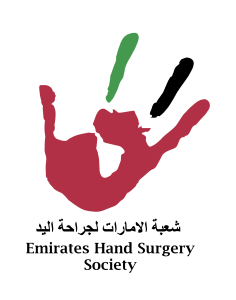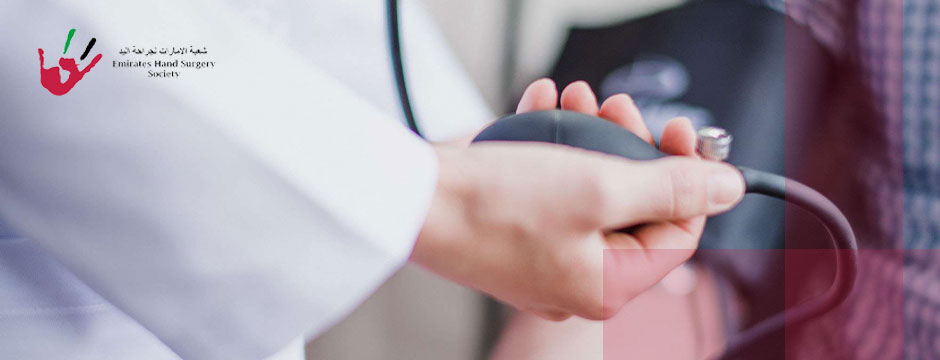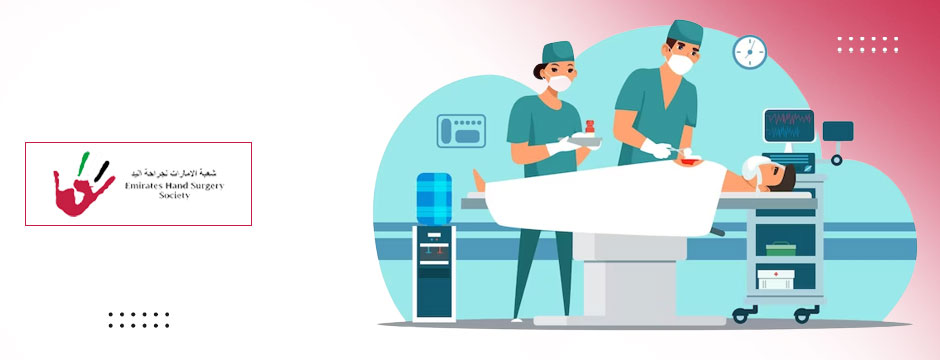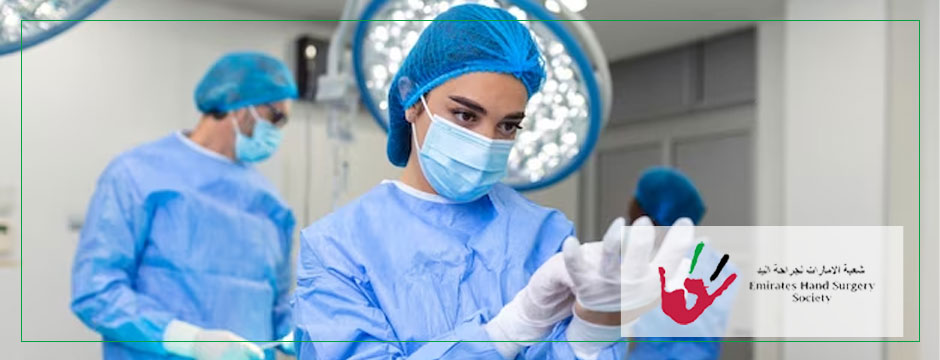[et_pb_section fb_built=”1″ _builder_version=”4.19.5″ _module_preset=”default” custom_padding=”||0px|||” global_colors_info=”{}”][et_pb_row _builder_version=”4.21.0″ _module_preset=”default” custom_margin=”-54px|auto|-21px|auto||” custom_padding=”||3px|||” global_colors_info=”{}”][et_pb_column type=”4_4″ _builder_version=”4.21.0″ _module_preset=”default” global_colors_info=”{}”][/et_pb_column][/et_pb_row][et_pb_row _builder_version=”4.21.0″ _module_preset=”default” custom_padding=”9px||2px|||” global_colors_info=”{}”][et_pb_column type=”4_4″ _builder_version=”4.21.0″ _module_preset=”default” global_colors_info=”{}”][/et_pb_column][/et_pb_row][/et_pb_section][et_pb_section fb_built=”1″ _builder_version=”4.22.2″ _module_preset=”default” global_colors_info=”{}”][et_pb_row _builder_version=”4.22.2″ _module_preset=”default” custom_margin=”-63px|auto|-63px|auto|true|” global_colors_info=”{}”][et_pb_column type=”4_4″ _builder_version=”4.22.2″ _module_preset=”default” global_colors_info=”{}”][et_pb_text _builder_version=”4.22.2″ _module_preset=”default” global_colors_info=”{}”]In the realm of medical education and training, Dubai has emerged as a global hub, offering cutting-edge programs and innovative approaches to aspiring healthcare professionals. Hand surgery, in particular, has witnessed significant advancements, thanks to the integration of technology into training methodologies. This blog explores the transformative role of technology in hand surgery training in Dubai, shedding light on the latest trends, tools, and their impact on the next generation of hand surgeons.[/et_pb_text][/et_pb_column][/et_pb_row][et_pb_row _builder_version=”4.22.2″ _module_preset=”default” global_colors_info=”{}”][et_pb_column type=”4_4″ _builder_version=”4.22.2″ _module_preset=”default” global_colors_info=”{}”][et_pb_text _builder_version=”4.22.2″ _module_preset=”default” custom_margin=”29px|||||” global_colors_info=”{}”]
1. Simulators and Virtual Reality (VR) Training
[/et_pb_text][/et_pb_column][/et_pb_row][et_pb_row _builder_version=”4.22.2″ _module_preset=”default” min_height=”139px” custom_padding=”5px||0px|||” global_colors_info=”{}”][et_pb_column type=”4_4″ _builder_version=”4.22.2″ _module_preset=”default” global_colors_info=”{}”][et_pb_text _builder_version=”4.22.2″ _module_preset=”default” global_colors_info=”{}”]One of the most remarkable technological advancements in hand surgery training is the utilization of simulators and virtual reality (VR) systems. These immersive technologies offer trainees a lifelike surgical experience without the need for live patients. Dubai-based training centers have adopted VR-based modules that allow students to practice intricate hand surgeries in a risk-free environment. These simulations help build confidence, refine techniques, and enhance surgical precision.[/et_pb_text][/et_pb_column][/et_pb_row][et_pb_row _builder_version=”4.22.2″ _module_preset=”default” global_colors_info=”{}”][et_pb_column type=”4_4″ _builder_version=”4.22.2″ _module_preset=”default” global_colors_info=”{}”][et_pb_image src=”https://ehssociety.org/wp-content/uploads/2023/09/The-Role-of-Technology-in-Advancing-Hand-Surgery-Training-in-Dubai-1.jpg” alt=”The Role of Technology in Advancing Hand Surgery Training in Dubai
” title_text=”The Role of Technology in Advancing Hand Surgery Training in Dubai” _builder_version=”4.22.2″ _module_preset=”default” global_colors_info=”{}”][/et_pb_image][/et_pb_column][/et_pb_row][et_pb_row _builder_version=”4.22.2″ _module_preset=”default” global_colors_info=”{}”][et_pb_column type=”4_4″ _builder_version=”4.22.2″ _module_preset=”default” global_colors_info=”{}”][et_pb_text _builder_version=”4.22.2″ _module_preset=”default” global_colors_info=”{}”]
2. Telemedicine and Remote Learning
[/et_pb_text][/et_pb_column][/et_pb_row][et_pb_row _builder_version=”4.22.2″ _module_preset=”default” min_height=”126.2px” custom_margin=”-24px|auto||auto||” custom_padding=”||17px|||” global_colors_info=”{}”][et_pb_column type=”4_4″ _builder_version=”4.22.2″ _module_preset=”default” global_colors_info=”{}”][et_pb_text _builder_version=”4.22.2″ _module_preset=”default” global_colors_info=”{}”]The integration of telemedicine in hand surgery training has broken geographical barriers, enabling students and professionals from around the world to access Dubai’s expertise. With teleconferencing and remote learning platforms, aspiring hand surgeons can participate in real-time surgical procedures, discussions, and case studies, all from the comfort of their homes. This level of accessibility is reshaping the landscape of medical education.[/et_pb_text][/et_pb_column][/et_pb_row][et_pb_row _builder_version=”4.22.2″ _module_preset=”default” global_colors_info=”{}”][et_pb_column type=”4_4″ _builder_version=”4.22.2″ _module_preset=”default” global_colors_info=”{}”][et_pb_text _builder_version=”4.22.2″ _module_preset=”default” global_colors_info=”{}”]
3. 3D Printing for Surgical Planning
[/et_pb_text][/et_pb_column][/et_pb_row][et_pb_row _builder_version=”4.22.2″ _module_preset=”default” custom_margin=”-21px|auto||auto||” global_colors_info=”{}”][et_pb_column type=”4_4″ _builder_version=”4.22.2″ _module_preset=”default” global_colors_info=”{}”][et_pb_text _builder_version=”4.22.2″ _module_preset=”default” global_colors_info=”{}”]Hand surgery teaching Dubai programs are harnessing the power of 3D printing for surgical planning and education. Trainees can now explore patient-specific anatomical models, allowing them to understand complex cases in three dimensions. These models serve as invaluable tools for preoperative planning and enhancing surgical dexterity.[/et_pb_text][/et_pb_column][/et_pb_row][et_pb_row _builder_version=”4.22.2″ _module_preset=”default” global_colors_info=”{}”][et_pb_column type=”4_4″ _builder_version=”4.22.2″ _module_preset=”default” global_colors_info=”{}”][et_pb_text _builder_version=”4.22.2″ _module_preset=”default” global_colors_info=”{}”]
4. Artificial Intelligence (AI) in Diagnosis and Treatment
[/et_pb_text][/et_pb_column][/et_pb_row][et_pb_row _builder_version=”4.22.2″ _module_preset=”default” min_height=”130.4px” custom_margin=”-35px|auto|-42px|auto||” custom_padding=”22px||6px|||” global_colors_info=”{}”][et_pb_column type=”4_4″ _builder_version=”4.22.2″ _module_preset=”default” global_colors_info=”{}”][et_pb_text _builder_version=”4.22.2″ _module_preset=”default” global_colors_info=”{}”]AI has made significant inroads into hand surgery by offering diagnostic and treatment support. In Dubai, AI algorithms analyze medical images, such as X-rays and MRIs, to detect conditions and assist in treatment planning. This not only speeds up diagnosis but also ensures that trainees are exposed to state-of-the-art tools and practices.[/et_pb_text][/et_pb_column][/et_pb_row][et_pb_row _builder_version=”4.22.2″ _module_preset=”default” global_colors_info=”{}”][et_pb_column type=”4_4″ _builder_version=”4.22.2″ _module_preset=”default” global_colors_info=”{}”][et_pb_text _builder_version=”4.22.2″ _module_preset=”default” global_colors_info=”{}”]
5. Telemonitoring and Postoperative Care
[/et_pb_text][/et_pb_column][/et_pb_row][et_pb_row _builder_version=”4.22.2″ _module_preset=”default” min_height=”177.2px” custom_margin=”|auto|-46px|auto||” custom_padding=”5px||0px|||” global_colors_info=”{}”][et_pb_column type=”4_4″ _builder_version=”4.22.2″ _module_preset=”default” global_colors_info=”{}”][et_pb_text _builder_version=”4.22.2″ _module_preset=”default” global_colors_info=”{}”]Technology has extended its reach beyond the operating room. Dubai’s hand surgery training programs employ telemonitoring systems to keep track of postoperative care. This allows trainers to remotely assess patients’ progress, provide guidance, and make necessary adjustments. Trainees gain insights into comprehensive patient care, from surgery to recovery.[/et_pb_text][/et_pb_column][/et_pb_row][et_pb_row _builder_version=”4.22.2″ _module_preset=”default” custom_margin=”-34px|auto|-34px|auto|true|” custom_padding=”0px|||||” global_colors_info=”{}”][et_pb_column type=”4_4″ _builder_version=”4.22.2″ _module_preset=”default” global_colors_info=”{}”][et_pb_text _builder_version=”4.22.2″ _module_preset=”default” global_colors_info=”{}”]
6.Online Learning Platforms and Mobile Apps
[/et_pb_text][/et_pb_column][/et_pb_row][et_pb_row _builder_version=”4.22.2″ _module_preset=”default” global_colors_info=”{}”][et_pb_column type=”4_4″ _builder_version=”4.22.2″ _module_preset=”default” global_colors_info=”{}”][et_pb_text _builder_version=”4.22.2″ _module_preset=”default” global_colors_info=”{}”]The proliferation of online learning platforms and mobile apps tailored for hand surgery has revolutionized the accessibility of educational resources. Dubai-based institutions offer a wealth of digital content, including lectures, surgical videos, and interactive modules, making it easier for trainees to study at their own pace.[/et_pb_text][/et_pb_column][/et_pb_row][et_pb_row _builder_version=”4.22.2″ _module_preset=”default” global_colors_info=”{}”][et_pb_column type=”4_4″ _builder_version=”4.22.2″ _module_preset=”default” global_colors_info=”{}”][et_pb_text _builder_version=”4.22.2″ _module_preset=”default” global_colors_info=”{}”]
7. Robotic-Assisted Surgery
[/et_pb_text][/et_pb_column][/et_pb_row][et_pb_row _builder_version=”4.22.2″ _module_preset=”default” min_height=”84.4px” custom_padding=”12px|||||” global_colors_info=”{}”][et_pb_column type=”4_4″ _builder_version=”4.22.2″ _module_preset=”default” global_colors_info=”{}”][et_pb_text _builder_version=”4.22.2″ _module_preset=”default” global_colors_info=”{}”]Robotic-assisted surgery has become a cornerstone of hand surgery training in Dubai. Trainees have the opportunity to work with cutting-edge robotic systems that enhance precision and dexterity in microsurgical procedures. The city’s commitment to staying at the forefront of medical technology is evident in its investment in these robotic platforms.[/et_pb_text][/et_pb_column][/et_pb_row][et_pb_row _builder_version=”4.22.2″ _module_preset=”default” global_colors_info=”{}”][et_pb_column type=”4_4″ _builder_version=”4.22.2″ _module_preset=”default” global_colors_info=”{}”][et_pb_text _builder_version=”4.22.2″ _module_preset=”default” global_colors_info=”{}”]
8. Data Analytics and Research
[/et_pb_text][/et_pb_column][/et_pb_row][et_pb_row _builder_version=”4.22.2″ _module_preset=”default” custom_padding=”10px|||||” global_colors_info=”{}”][et_pb_column type=”4_4″ _builder_version=”4.22.2″ _module_preset=”default” global_colors_info=”{}”][et_pb_text _builder_version=”4.22.2″ _module_preset=”default” global_colors_info=”{}”]Dubai’s hand surgery training programs leverage data analytics to enhance research initiatives. Trainees are exposed to big data analysis, helping them understand trends, outcomes, and potential innovations in the field. This approach fosters a culture of evidence-based practice and continuous improvement.[/et_pb_text][/et_pb_column][/et_pb_row][et_pb_row _builder_version=”4.22.2″ _module_preset=”default” custom_padding=”8px|||||” global_colors_info=”{}”][et_pb_column type=”4_4″ _builder_version=”4.22.2″ _module_preset=”default” global_colors_info=”{}”][et_pb_text _builder_version=”4.22.2″ _module_preset=”default” global_colors_info=”{}”]
9. Global Collaborations and Knowledge Sharing
[/et_pb_text][/et_pb_column][/et_pb_row][et_pb_row _builder_version=”4.22.2″ _module_preset=”default” custom_padding=”0px|||||” global_colors_info=”{}”][et_pb_column type=”4_4″ _builder_version=”4.22.2″ _module_preset=”default” global_colors_info=”{}”][et_pb_text _builder_version=”4.22.2″ _module_preset=”default” global_colors_info=”{}”]Dubai’s commitment to technological advancement in hand surgery extends beyond its borders. Collaborations with renowned medical institutions worldwide facilitate knowledge sharing and ensure that trainees are exposed to a diverse range of perspectives and best practices.[/et_pb_text][/et_pb_column][/et_pb_row][et_pb_row _builder_version=”4.22.2″ _module_preset=”default” custom_padding=”9px|||||” global_colors_info=”{}”][et_pb_column type=”4_4″ _builder_version=”4.22.2″ _module_preset=”default” global_colors_info=”{}”][et_pb_text _builder_version=”4.22.2″ _module_preset=”default” global_colors_info=”{}”]
10. Patient-Centered Care
[/et_pb_text][/et_pb_column][/et_pb_row][et_pb_row _builder_version=”4.22.2″ _module_preset=”default” min_height=”103.4px” custom_padding=”0px|||||” global_colors_info=”{}”][et_pb_column type=”4_4″ _builder_version=”4.22.2″ _module_preset=”default” global_colors_info=”{}”][et_pb_text _builder_version=”4.22.2″ _module_preset=”default” global_colors_info=”{}”]Ultimately, the infusion of technology into hand surgery training in Dubai is driven by a commitment to patient-centered care. By equipping trainees with state-of-the-art tools and techniques, Dubai aims to produce a new generation of hand surgeons who prioritize patient safety, comfort, and outcomes.[/et_pb_text][/et_pb_column][/et_pb_row][et_pb_row _builder_version=”4.22.2″ _module_preset=”default” global_colors_info=”{}”][et_pb_column type=”4_4″ _builder_version=”4.22.2″ _module_preset=”default” global_colors_info=”{}”][et_pb_image src=”https://ehssociety.org/wp-content/uploads/2023/09/hand-surgery-training-in-Dubai-1.jpg” alt=”hand surgery training in Dubai” title_text=”hand surgery training in Dubai” _builder_version=”4.22.2″ _module_preset=”default” global_colors_info=”{}”][/et_pb_image][/et_pb_column][/et_pb_row][et_pb_row _builder_version=”4.22.2″ _module_preset=”default” custom_padding=”0px|||||” global_colors_info=”{}”][et_pb_column type=”4_4″ _builder_version=”4.22.2″ _module_preset=”default” global_colors_info=”{}”][et_pb_text _builder_version=”4.22.2″ _module_preset=”default” global_colors_info=”{}”]
Conclusion
[/et_pb_text][/et_pb_column][/et_pb_row][et_pb_row _builder_version=”4.22.2″ _module_preset=”default” custom_padding=”0px|||||” global_colors_info=”{}”][et_pb_column type=”4_4″ _builder_version=”4.22.2″ _module_preset=”default” global_colors_info=”{}”][et_pb_text _builder_version=”4.22.2″ _module_preset=”default” global_colors_info=”{}”]Dubai’s hand surgery training programs have embraced technology as a catalyst for progress. The integration of VR, telemedicine, AI, 3D printing, and more has revolutionized the way future hand surgeons are educated and prepared for the challenges of their profession. As technology continues to evolve, Dubai’s commitment to staying at the forefront of medical education ensures that hand surgery trainees receive a world-class education that combines innovation with patient-centered care. In the ever-advancing landscape of healthcare, Dubai stands as a beacon of progress and opportunity for aspiring hand surgeons.
Want to find out more? Visit us at Emirates Hand Surgery Society![/et_pb_text][/et_pb_column][/et_pb_row][/et_pb_section]



